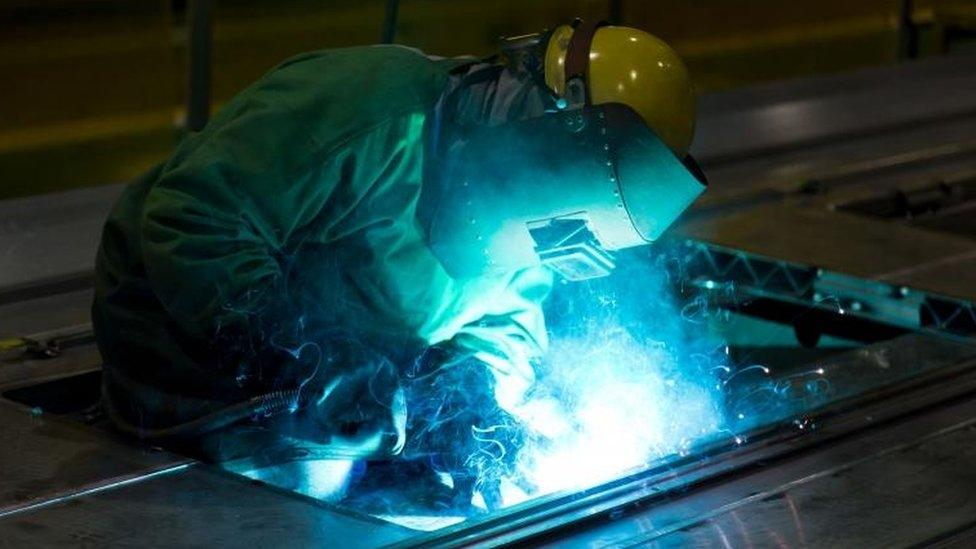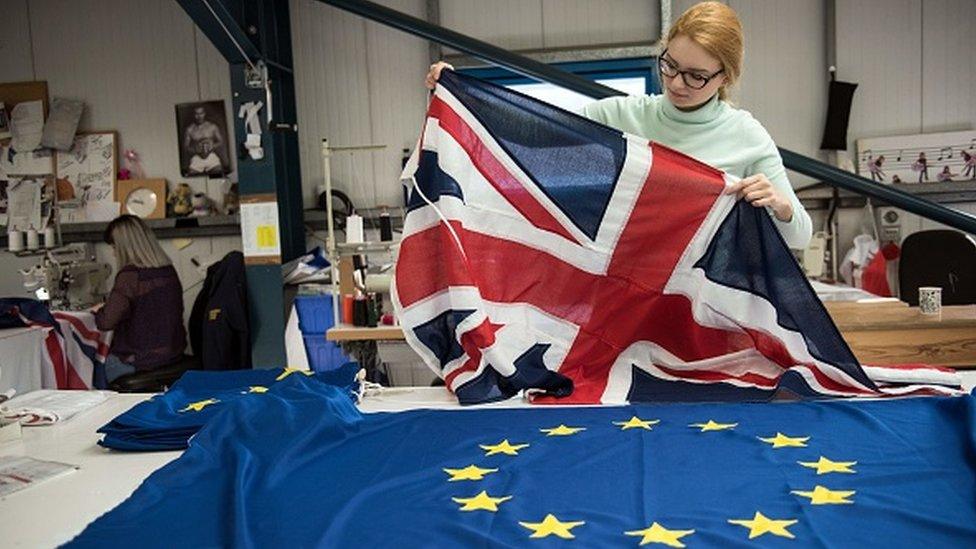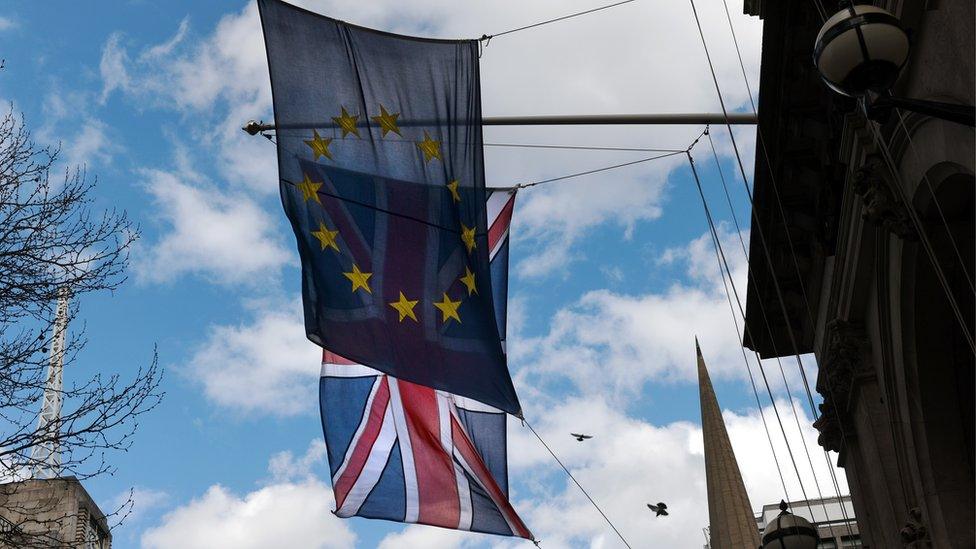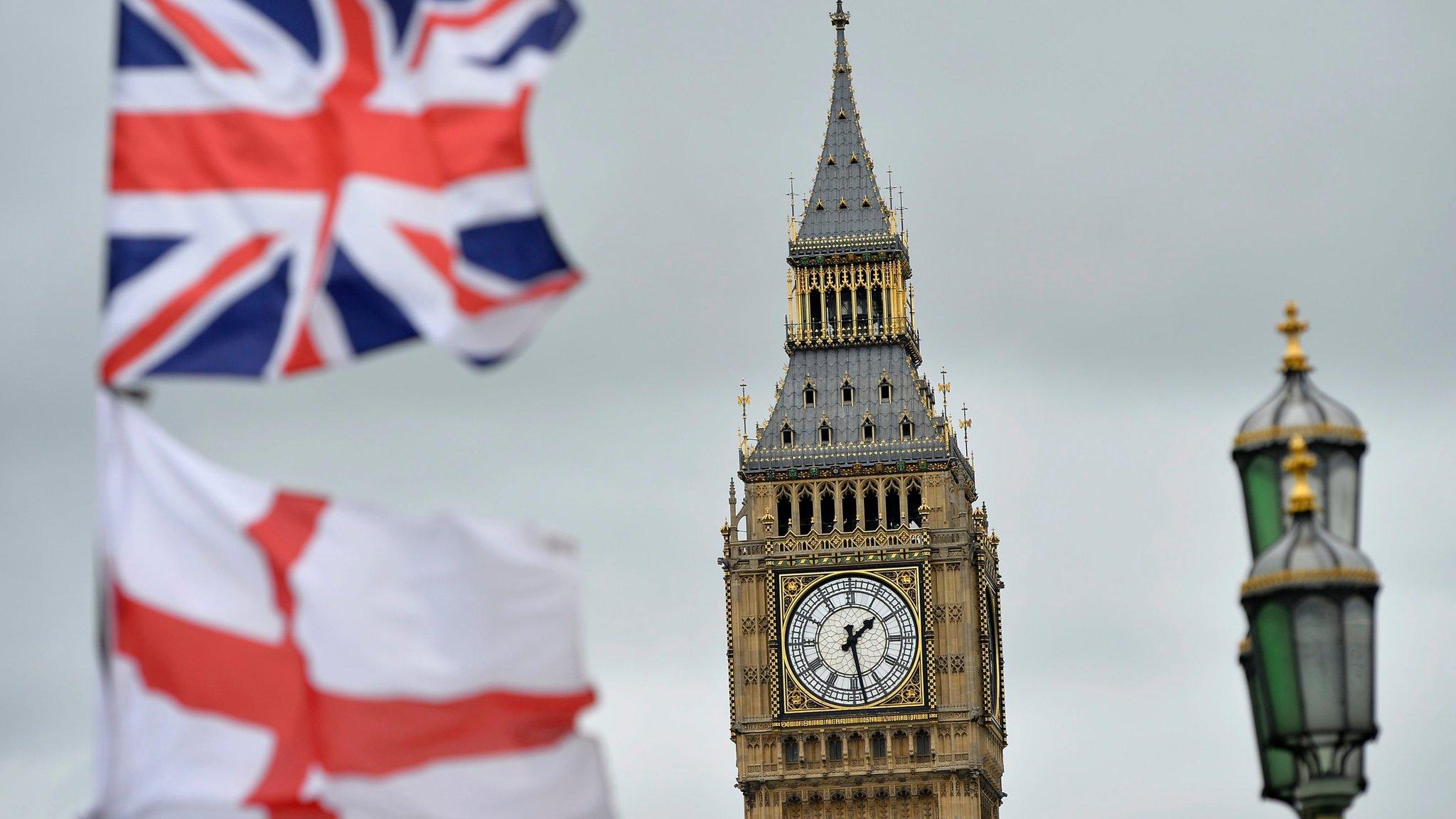Hung parliament sinks business confidence, IoD finds
- Published
- comments

The uncertainty caused by the general election has led business confidence to sink "through the floor", according to a lobby group.
A snap poll of 700 members of the Institute of Directors found a "dramatic drop" in confidence following the hung parliament.
Members saw no clear way to resolve the political impasse quickly, the IoD said.
However, it found there was "no desire" for another election this year.
Going to the polls again before Christmas would have a negative impact on the UK economy, which was already facing global headwinds, the IoD said.
The loss of the Conservatives' majority in the Commons has led Theresa May to seek the support of MPs from Northern Ireland's Democratic Unionist Party to govern.
The resulting political uncertainty could have disastrous consequences for the UK economy, said Stephen Martin, IoD director-general.
"The needs of business and discussion of the economy were largely absent from the [general election] campaign, but this crash in confidence shows how urgently that must change in the new government," he said.
The main priority for the new government should be striking a new trade deal with the European Union, according to the IoD.
The 700 members who responded to its survey wanted a rapid agreement with the European Union on transitional arrangements for Brexit, along with clarity on the status of EU workers in the UK.
Flexibility and pragmatism
A separate survey, external of more than 50 medium sized businesses and trade associations by the Harvard Kennedy School of Business found that "almost all" expressed a preference for remaining in the single market and customs union.
The report, by former shadow chancellor Ed Balls and Peter Sands, previously the boss of investment bank Standard Chartered, found that all companies questioned were concerned about potentially rising costs from tariffs and customs controls while many were worried about the UK leaving the EU without a deal at all.
Mr Sands told the BBC: "When it comes down to it most would prefer to be in the single market - that makes it easier for them to do business, and if they can't get that they want a free trade agreement or something as close to the single market as possible."

Andy Silvester, the IoD's head of campaigns, told the BBC he now expected to see more flexibility and pragmatism around the Brexit negotiations.
The IoD survey echoed comments by Paul Drechsler, president of the CBI, who said the UK needed to quickly agree transitional arrangements and guarantee EU citizens' rights before focusing Brexit talks on future trading relationships.
"To succeed, the UK needs to build the best partnership seen anywhere in the world between its business and the new government, not just on Brexit but on other issues fundamental to the foundations of our economy," he said.
End of cheap labour?
Meanwhile, companies have been urged to better prepare for a fall in migrant labour following Brexit.
A survey of 500 business leaders by the Resolution Foundation found that almost one in five expected no change to freedom of movement for EU nationals to the UK, while nearly a third believed that the system would be maintained for those with a job offer.
The foundation warned that lower migration, along with a higher minimum wage and a tightening jobs market, could mean the end of cheap labour for many UK firms.
In Theresa May's cabinet reshuffle, Greg Clarke remains Business Secretary and Philip Hammond stays as Chancellor, while Michael Gove was brought back into the cabinet as Environment Secretary.
- Published11 June 2017

- Published11 June 2017
